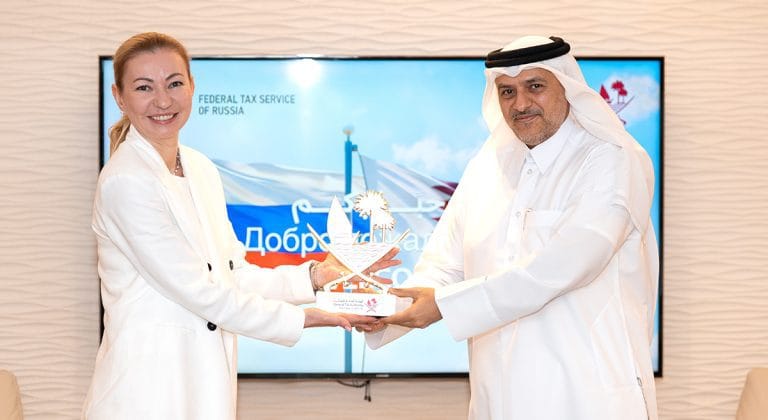🎧 Listen to This Article
In a strategic move to enhance the digital infrastructure of national tax systems, Qatar’s General Tax Authority (GTA) and Russia’s Federal Tax Service convened this week in Doha for a joint workshop that signals a deepening of bilateral cooperation in tax digitalization and e-invoicing modernization.
The session marks a milestone in Qatar’s broader digital transformation roadmap, positioning its tax authority as a central data and compliance hub while aligning with international standards in electronic tax administration.
A New Axis in Digital Tax Diplomacy
The workshop, held at the GTA’s headquarters in Doha, focused on three key areas:
- Digital transformation of tax systems
- Implementation of e-invoicing frameworks
- Exchange of best practices in VAT reform and regulatory automation
Both countries emphasized the value of technical collaboration, highlighting the importance of leveraging Russia’s mature experience in electronic VAT systems and digital compliance technologies.
“This collaboration supports our mission to evolve into a modern, intelligent tax administration,” said a GTA spokesperson, referencing Qatar’s goal to serve as a regional model for digital tax infrastructure.
Russia’s VAT and E-Invoicing Expertise in Focus
Russian delegates shared insights into the country’s multi-phase implementation of e-invoicing for VAT compliance, a system now regarded as one of the most technically advanced in the Eurasian region. Presentations included:
- How automation reduced fraud and improved VAT collection
- Integration with real-time payment and customs systems
- Legislative and enforcement challenges, and how they were overcome
The goal for Qatar, officials stated, is to adapt and localize these learnings into the Gulf nation’s tax framework, with a phase-based rollout of e-invoicing by 2026 already underway.
Strategic Impact: Compliance, Efficiency, and Investment
The workshop is part of Qatar’s strategic plan to build greater efficiency, transparency, and taxpayer trust, and is expected to:
- Reduce compliance costs for businesses through automation
- Improve tax revenue collection accuracy
- Enhance Qatar’s attractiveness as an investment hub by aligning with OECD digital tax standards
Russia, for its part, views the partnership as an opportunity to extend its technical influence and promote interoperability across emerging digital tax jurisdictions.
Global Context and Future Outlook
This bilateral effort reflects a growing trend among tax authorities globally: technology-first tax modernization, especially in jurisdictions seeking to diversify revenue bases and improve taxpayer service without increasing tax rates.
“Digital tax administration is no longer a future goal — it’s an operational necessity,” said one Russian delegate.
Both sides committed to expanding the partnership through additional technical exchanges, joint R&D in tax tech, and possible pilot programs on cross-border VAT and documentation systems.
For further details, clarification, contributions, or any concerns regarding this article, please get in touch with us at editorial@tax.news. We value your feedback and are committed to providing accurate and timely information. Please note that our privacy policy will handle all inquiries.



